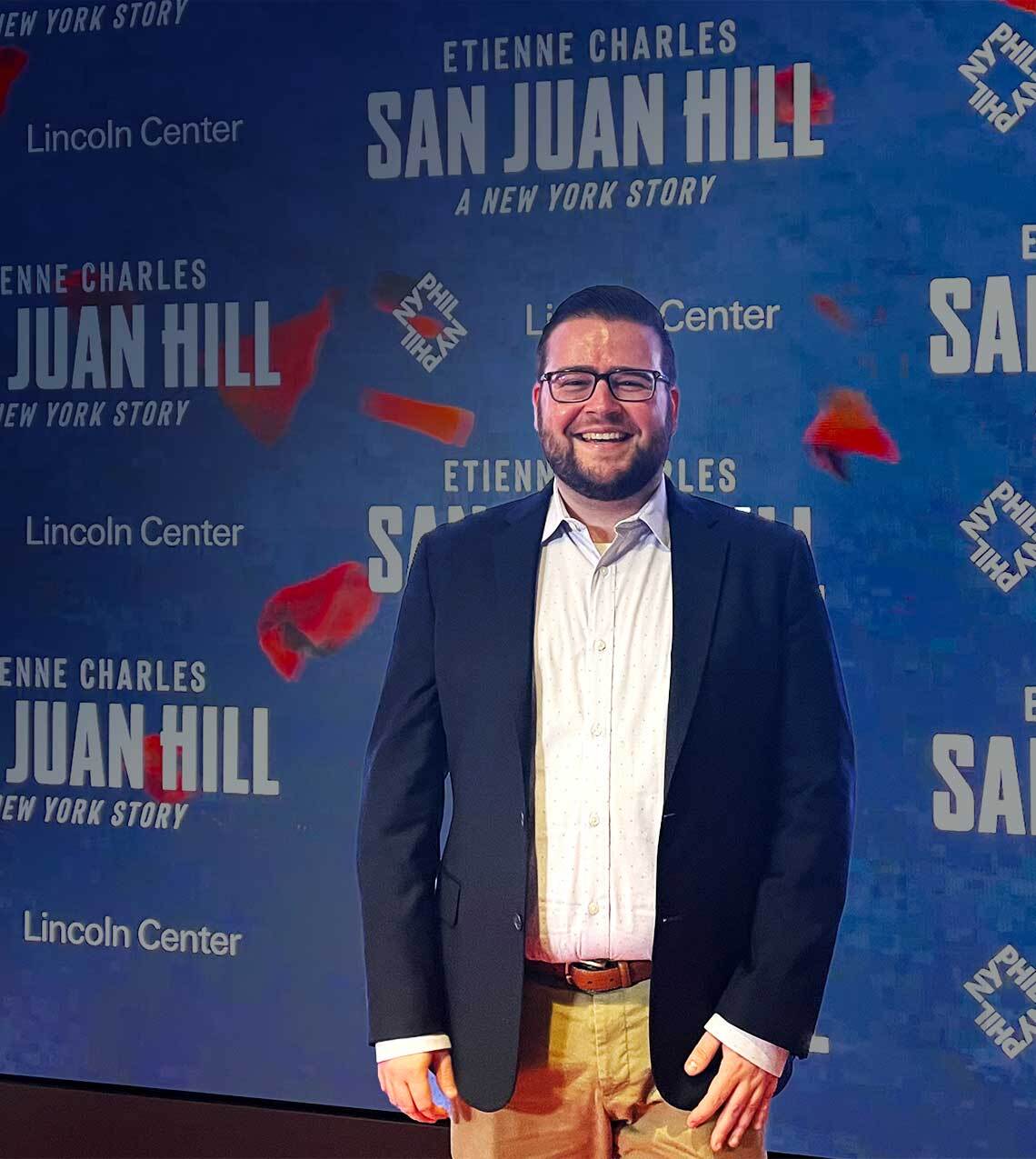Kasirer Spotlight
Doug Spring serves as Senior Associate & Manager, Outreach & Advocacy, Nonprofits, and primarily works to serve Kasirer’s various nonprofit clients on the development and implementation of client strategy for budget appropriations and policy and legislative proposals.

Tell us about your background and what brought you to Kasirer.
I was a political science and international political economy double major at Fordham University. I’ve always loved politics; I ran for the student council in fourth grade! At first, I thought I wanted to become an accountant like my brother, but that was quickly nixed.
I didn’t have any internships during undergrad because I was a resident assistant and dedicated all of my time to that and student government. However, when I was doing my master’s in elections and policy management – also at Fordham – Kasirer was my first internship. I was also a resident director then, which helped me develop a background in community development, organization, and crisis management. Working at Kasirer put into context all of the mechanisms affecting change.
What have been the most transformative projects you’ve worked on for the Nonprofits team?
Of course, all clients have a special spot in my heart, but I think one of the more transformative ones is The Brotherhood Sister Sol project on the Upper West Side. My first site visit was to them, when they were ending a capital campaign for a new home. It was a completely empty lot and they recently opened in April of this year, so I’ve seen that building be developed and built from the ground up. It led me to appreciate how much goes into a project of that magnitude.
Also, the New-York Historical Society project has been pretty special. They are in the midst of an expansion project; they have a vacant lot that’s been empty for the past few decades, and it’s currently being developed to include the first home of the American LGBTQ+ Museum.
COVID-19 resulted in the shift for nonprofits to learn how to advocate in a digital world. Can you discuss how you have been successful in guiding clients to use data to inform advocacy, and how nonprofits can make data compelling to elected and government officials?
There needs to be data to back up any story. You can tell a great narrative but elected and government officials are going to ask where the public’s money is going. Numbers are necessary; some numbers are easy, like number of attendees and things like that, but some are harder to come by. A lot of the nonprofits we work with focus their services on vulnerable populations, and sometimes those numbers are confidential, but even for cases like that, we have to come up with a different way to tell their story. During COVID-19, some nonprofits – such as Citymeals on Wheels – were already helping underserved New Yorkers. Suddenly, that population skyrocketed, and the need was higher than ever. With volume increasing, more funding had to be allocated. The advocacy and nonprofits field saw a rapid increase in work, contrary to a lot of sectors during the pandemic.
Personally, I’m a big fan of visualizing data. Rather than numbers on a page, I ask myself and my team: how can we make that into a graphic? Infographics can be very compelling.
Part of your role is managing Kasirer’s fantastic internship program. Why would you recommend an internship program with Kasirer to a prospective applicant, and how can interns take advantage of the opportunities available through this internship to help them in their studies and job search?
One of my favorite parts of my job is running our intern program. We have been able to give our interns real work, such as covering important hearings and petitioning, rather than other internships who may have people stack papers or seal envelopes. Past interns have told me how much they’ve learned and grown through their experience, some even to the point that it changed their career paths!
To make the most of this experience, I always tell the interns to attend as many events as possible, interact with our full-time staff and with their intern cohort. Building connections is vital! You never know what your fellow interns will go on to accomplish and having a network in the city is irreplaceable.
When you were a kid, what did you want to be when you grew up and why?
I always wanted to be a teacher. When I was a kid, I used to hold ‘classes’ in my basement with my little sister. I had a chalkboard and I gave her homework assignments. In many ways, I feel like I’ve become that – not only through my experience in college residential life – but because of Kasirer, and how I get the opportunity to teach blossoming talent through the internship program.
I also have vivid memories of pretending to drive a bus in kindergarten and wanting to be a bus driver. Then, it morphed into wanting to be a train conductor. When I was four or five, I was with my parents coming home from the circus at Madison Square Garden and we got on the LIRR – the conductor’s car. For whatever reason, the conductor let me honk the train horn, and I’m still not over it. I need to drive a train one day. If I have to sneak in, I will!
Pets/TV shows/any other fun stuff?
Back at home, my family adopted a dog named Kara. She is the best and I am there every week to see her… and my family, of course. I have to limit watching reality TV because it will consume me, but I love Big Brother. Who knows, maybe I’ll apply someday!
